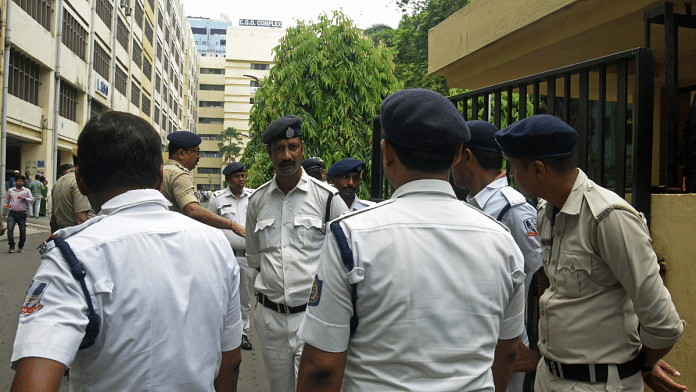New Delhi: The Calcutta High Court has issued a circular outlining guidelines for the police of West Bengal and Andaman and Nicobar and criminal courts to be followed in dowry harassment cases.
Issued on 23 August by the HC’s registrar general, the notification is to ensure that “police officers do not arrest the accused unnecessarily and magistrate do not authorise detention casually and mechanically”.
Failure to follow the guidelines could invite departmental action against the errant police personnel and also contempt of court, the guidelines assert. Even the magistrate would be liable for departmental action by the high court in case of failure to follow the regulations mentioned in the notification.
According to the notification, it is an extension of the directions issued by the Supreme Court in the judgement of the Md. Asfak Alam Vs Jharkhand case which emphasised the values of personal liberty in the context of applying discretion to grant bail.
In this judgement, the top court has laid down guidelines regarding arrests and bails, which the high courts are to ensure that the rules are implemented.
The states were asked to instruct the police officers to not automatically arrest when a case under Section 498A IPC is registered, but to satisfy themselves about the necessity for arrest under the parameters laid down above flowing from Section 41 of the Criminal Procedure Code (CrPC).
Section 498A of the Indian Penal Code (IPC) deals with the offence of cruelty by husband or in-laws of a woman. This section along with the Dowry Prohibition Act is invoked in dowry harassment cases.
Section 41 of CrPc provides for the circumstances of when a police officer may arrest a person without a warrant. To avoid arbitrariness during arrest of persons by police officers, detailed pointers have been provided under this provision of the CrPC.
The HC notification warrants a check list of all the specified sub-clauses under Section 41 (1) to be provided to the police, who shall follow it duly filled and furnish the reasons and materials which necessitated the arrest, while producing the accused before the magistrate.
In cases where the police decide not to arrest, such a decision must be forwarded to the magistrate within two weeks from the date of the proceeding initiated by the aggrieved in a court.
A copy of this decision, as per the notification, may also be given to the superintendent of police (SP). The decision should record the reasons for not arresting the accused in writing.
The magistrate has to examine the report furnished by the police regarding both the case scenario and should write the reasons in writing to either accept or reject the report before authorising detention.
Notice of appearance before the police is to be served on the accused within two weeks from the institution of the case, which may be extended by the SP who has to record the reasons in writing, according to the notification.
(Edited by Tony Rai)



